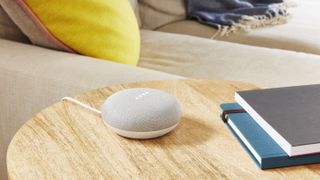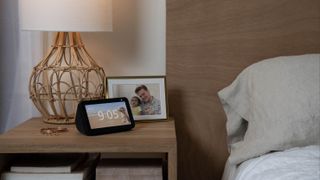Google Assistant, Alexa, and Siri are teaming up for 2021– so is the battle for your smart home over?
The smart home is about to get even smarter

Your smart home is about to get even smarter, according to the latest update from the Zigbee Alliance, a group of companies working towards a unified standard for smart home devices.
The group, which includes Apple, Google, and Amazon, said that it's on track for a 2021 launch in a recent update, and will deliver a draft specification "by late 2020".
In the announcement, the group described the goals of 'Project Connected Home over IP', saying that it hoped to "pull off our promise to unify a fragmented industry under a single connectivity standard that would help companies focus on creating experiences over 'plumbing'".
More choice for consumers
A 2021 release date means that our smart home devices could become service-agnostic much quicker than we anticipated – especially considering the delays that many tech companies have faced as a result of the coronavirus pandemic.
The Zigbee Alliance now boasts "145 active companies", including many of the big players in the smart home world like Philips Hue and Samsung SmartThings.
Its aim is to create a reliable standard of connectivity for smart home devices, that could be used by manufacturers to improve the user experience, making it easier to set up a smart home system – whatever system you're using.

With all of these big companies working together, it could allow us far more choice when it comes to adding new devices to your smart home – in theory, you wouldn't be tied down to one system, as it becomes easier for manufacturers to include support for the major voice assistants (Google Assistant, Amazon Alexa, and Apple's Siri) within their products.
Get daily insight, inspiration and deals in your inbox
Get the hottest deals available in your inbox plus news, reviews, opinion, analysis and more from the TechRadar team.
The smart home devices that it's targeting include "lighting and electrical (e.g., light bulbs, luminaires, controls, plugs, outlets), HVAC controls (e.g., thermostats, AC units), access control (e.g., door locks, garage doors), safety and security (e.g., sensors, detectors, security systems), window coverings/shades, TVs, access points, bridges and others." So, pretty much everything you could think of.
The project certainly sounds pretty idyllic, but it's worth bearing in mind that companies can pick and choose which technologies they'd like to implement. So, don't expect the Apple HomePod 2 to come with Alexa built-in – or the fierce competition for control over your smart home to disappear any time soon.
Via Android Central
Olivia was previously TechRadar's Senior Editor - Home Entertainment, covering everything from headphones to TVs. Based in London, she's a popular music graduate who worked in the music industry before finding her calling in journalism. She's previously been interviewed on BBC Radio 5 Live on the subject of multi-room audio, chaired panel discussions on diversity in music festival lineups, and her bylines include T3, Stereoboard, What to Watch, Top Ten Reviews, Creative Bloq, and Croco Magazine. Olivia now has a career in PR.

